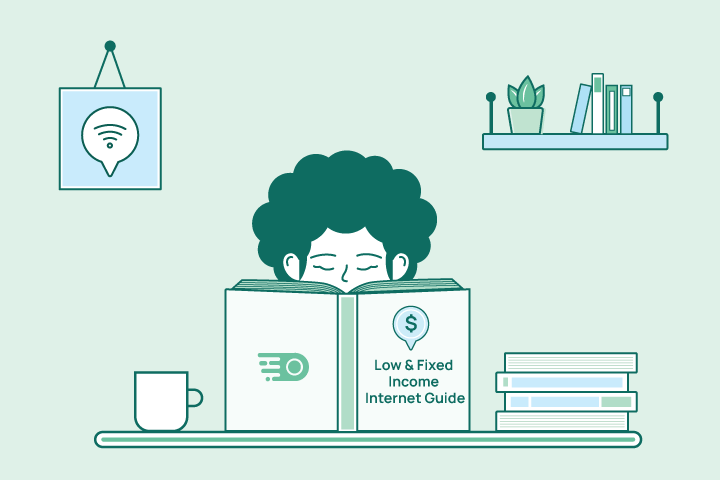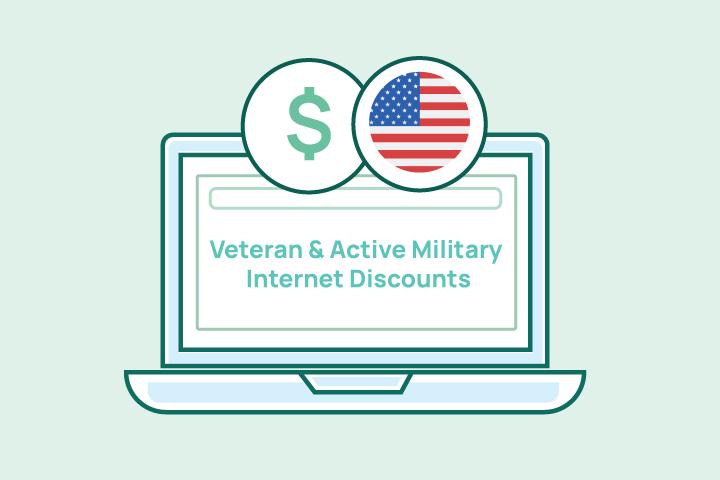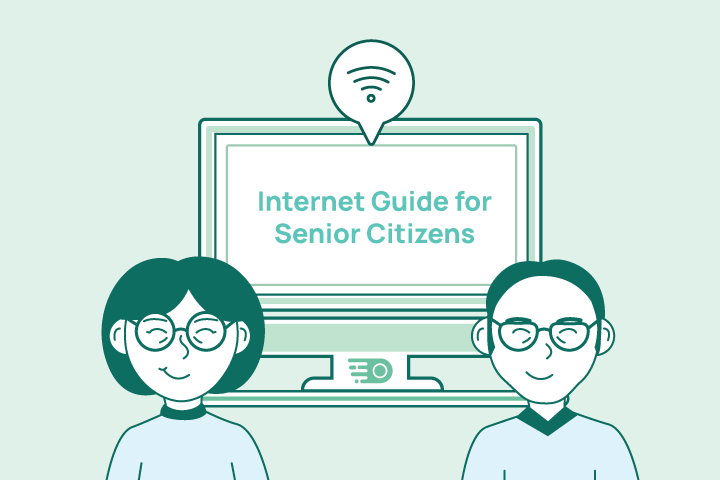Internet Guide for Low & Fixed Incomes

HighSpeedOptions prides itself on providing honest, quality content. While we may be compensated when you make a purchase through links on our site, all opinions are our own. Here's how we make money.
Table of Contents
Our Internet Guide for Low & Fixed Incomes will help individuals and families:
- Understand how the Lifeline and Emergency Broadband Benefit programs work, check eligibility, and how to apply
- Find low-income internet assistance programs from ISPs
- Connect with nonprofit organizations that provide affordable internet options and free computers

Introduction
We live in a digital world, and no one should have to go without access to communications technology like phones, televisions, personal computers, and especially the internet. Luckily, there are programs from the government, internet service providers, and nonprofits that are working to close the digital divide by providing resources and access to low-income internet for families and individuals. In this guide you’ll find:
Lifeline Support for Affordable Internet
Lifeline is a program from the FCC that makes communications services accessible and affordable for low-income consumers. Lifeline offers a monthly discount on internet or telephone services from participating providers.
How Does Lifeline Work
Eligible low-income households receive up to a $9.25 discount on either phone or internet service each month, but not both. The Lifeline program is available in every state, commonwealth territory, and on Tribal lands. Use Lifeline’s company search tool to see if there are participating internet service providers near you. Please note that the results might not show every available provider, so you can always reach out to providers directly to see if they offer Lifeline.
Qualifications and How to Apply for Lifeline
To participate in the Lifeline program, consumers must have an income at or below 135% of the Federal Poverty Guidelines, or participate in any of these federal assistance programs:
- Supplemental Nutrition Assistance Program (SNAP), formerly known as Food Stamps
- Medicaid
- Supplemental Security Income (SSI)
- Federal Public Housing Assistance (FPHA)
- Veterans Pension and Survivors Benefit
- Tribal Programs (and live on federally-recognized Tribal lands)
You can also sign up for Lifeline if your child or dependent participates in any of the programs listed above. Show a card, letter, or official document as proof that you participate in one of these programs when you apply for Lifeline.
Low-Income Assistance Programs from Internet Service Providers

Several internet service providers have assistance programs to help provide discounted internet for low-income households.
AT&T Access
Access from AT&T provides low-cost internet service for eligible households. If AT&T internet is available in your area and your household participates in SNAP, SSI, NSLP, and other programs, you can receive internet service for $10 per month or less based on the maximum speed available at your address (up to 25 Mbps). Find out if Access from AT&T is available near you and apply.
Internet Essentials From Comcast (Xfinity)
Internet Essentials is a starter program from Comcast that provides low-income households with 25 Mbps Xfinity internet and in-home WiFi for $9.95 per month. Individuals can qualify if they are eligible for the NSLP, Housing Assistance, Medicaid, SNAP, SSI, and other programs. Internet Essentials customers also have the option to purchase a laptop or desktop computer at a discounted price.
Cox Connect2Compete
Cox is helping families stay connected online with affordable, low-income internet. With the Cox Connect2Compete program, eligible families can get low-cost, home internet with WiFi for $9.95 per month. Visit their website to see if you’re qualified and start your application.
Frontier Lifeline Program
Frontier is committed to supporting qualified individuals pay for select internet or phone services with Frontier Lifeline. If you don’t already have voice services with Frontier, but you have standalone internet access, you may qualify for the Lifeline discount. The discount amount varies by state, so visit Frontier’s website and search for your state to start.
Enter your zip code to see providers near you
Mediacom Connect2Compete
Similar to Cox, Mediacom offers discounted internet (25 Mbps) at $9.95 per month. If Mediacom internet service is available in your area, you must have at least one student in grades K-12 living at home, or a child participating in the NSLP. Learn more about Mediacom Connect2Compete and find out if you’re eligible.
RCN Internet First
RCN offers the RCN Internet First program, which is designed to help families and students in low-income households have reliable access to the internet. Qualifying households receive internet up to 25 Mbps for $9.95 per month with the first 60 days free. Learn more about Internet First and see if you are eligible to apply.
Spectrum Internet Assist
The Spectrum Internet Assist program provides discounted high-speed Spectrum internet (30 Mbps) to low-income households, with the option to add in-home WiFi for $5 per month. Eligible households will also receive Spectrum’s Security Suite and an internet modem at no additional cost.
Windstream Lifeline Program
Windstream also accepts the federal Lifeline discount to help qualified individuals lower their monthly cost of phone or internet service. The monthly Lifeline discount can be applied to your internet or phone plan, not both.
If you don’t qualify for the programs listed above, you can still find low-cost internet options to help save some cash each month. Internet service providers and their availability, prices, and plans all vary by location, so use our zip code search tool below to see what ISPs are in your area.
Nonprofit Organizations for Internet Access & Tech

If you’re in need of additional resources like technology and digital training, several nonprofits offer discounted or free refurbished computers, training, and tools to find low-cost internet for low-income families. Check out these organizations and how they can help you.
Computers with Causes
Computers with Causes is an organization that provides refurbished computers gifted by their donors to educational programs, students, and others in need. To become a candidate for a computer, complete the Computers with Causes application form.
EveryoneOn
EveryoneOn is a nonprofit dedicated to connecting low-income families to affordable internet service and computers. Use their offer locator tool to find low-cost internet and device offers in your area.
human-I-T
human-I-T is a nonprofit that provides low-income individuals and other nonprofits with technology, internet, and digital training. Use their free resources to request low-cost internet or refurbished technology.
PCs for People
PCs for People provides affordable computers and low-cost internet to qualified individuals and nonprofits. To receive technology and services, you must be below the 200% poverty level or currently be enrolled in an income-based government assistance program. Read more on their website about eligibility and how you can apply.
The On It Foundation
The On It Foundation is a nonprofit that gives free computers along with computer training and internet access to low-income families with K-12 students. Learn more about qualifying for a free computer and how to apply.
If you are a veteran or senior looking for additional resources for discounted internet and technology, check out our Veteran & Active Military Internet Discounts Guide and Internet Discounts Guide for Senior Citizens.
Find providers in your area

Table of Contents




